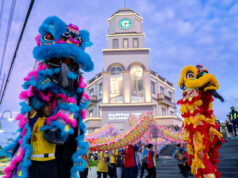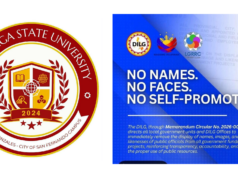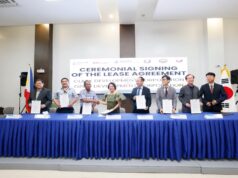Although a non-communicable disease, diabetes is spreading rapidly. Dr. Paul Zimmet, director of the International Diabetes Institute in Victoria , Australia , predicts that diabetes “is going to be the biggest epidemic in human history.”
In the Philippines , one out of every five adults is diabetic. This figure comes from the latest national survey conducted on the prevalence of diabetes in the country.
In addition, as many as three out of five adults are already diabetic or on the verge of developing diabetes unless they change their lifestyle.
Diabetes mellitus (its complete name) is a chronic, debilitating and often deadly disease that affects how the body turns food into energy.
Normally, the food we eat is converted into glucose and used or stored by the body with little problems.
Circulating insulin hormone stimulates the uptake of sugar by the body’s cells. But with diabetes something goes awry. The pancreas, which is the organ responsible for producing insulin, becomes irresponsible.
Diabetes strikes in two forms. In the less common Type 1, the body does not make enough insulin and generally afflicts children and adolescents.
Type 2 diabetes are either unable to produce enough insulin, or, if they do churn out enough, are unable to process and utilize it properly. The latter type is much more widespread and most often strikes in adulthood.
About 40 percent of diabetics require oral agents for satisfactory blood glucose control, and some 40 percent need insulin injections. People with Type 1 diabetes are usually totally dependent on insulin injections for survival. Such people require daily administration of insulin.
However, the majority of people suffering from diabetes have the Type 2 form. Although they do not depend on insulin for survival, about one third of sufferers need insulin for reducing their blood glucose levels.
More often than not, diabetics abhor sugar like the plague. But there is a natural sugar that they can consume:
coco sugar.
It is derived from coconut sap or toddy, which contains 12-18 percent sugar in its natural form with important vitamins and amino acids.
Prior to the discovery of coco sugar, the coconut sap was traditionally made into alcohol drinks (tuba and lambanog), or as vinegar.
“A natural sweetener and functional food, coco sugar is a much welcome development for diabetics and hypoglycemics,” said the Philippine Council for Agriculture, Forestry, and Natural Resources Research and Development (PCARRD).
Compared with refined cane sugar, coco sugar has a glycemic index (GI) at 35. This is much lower than the 54 GI, the level which nutritionists consider as safe for people who have to watch out their glucose level.
“Having a low GI means that people who consume coco sugar will not experience sudden spikes in their blood glucose or blood sugar levels,” explained PCARRD, a line agency of the Department of Science and Technology.
The Philippine Coconut Authority (PCA) agrees. Research results have shown that diabetics who use coco sugars are able to stabilize their blood sugar levels, PCA said in its website.
Aside from having a low GI, coco sugar is also rich in nutrients and high in potassium, phosphorus, magnesium, sulfur, calcium, and vitamin C. Like other sweetener, coco sugar can be used in coffee, tea, juice, cakes, pastries, and sauces or dressings.
With its health benefits, the coco sugar is gaining wide popularity in the country and even abroad. At present, coco sugar is exported to the United States , where it is consumed by diabetics and health-conscious individuals.
There are also reports that it will be shipped also to Europe, Japan , and the Middle East .
Yes, there’s now money in producing natural coco sugar. Ask Benjamin Lao, who has an integrated farm in Eman, Bansalan, Davao del Sur. But the crop that dominates them all is coconut.
After doing extensive research, Lao started his own coco sugar production. In 2005, he was chosen as the most outstanding farmer of Davao del Sur.
The following year, PCARRD recognized him as a Magsasakang Siyentista. In 2007, the Department of Agriculture (DA) bestowed him the honor as one of the country’s outstanding farmers.
In 2008, Lao launched Donna Belle Coco Sugar and for the last two years, he has been exporting his products to the United States and Canada . “My coco sugar is guaranteed 100-percent free from chemicals,” he says.
Today, Lao is developing new products using coco sugar as staple ingredient. Some of these are ginger brew, banana chips, coconut polvoron, coconut balls, and lemon grass tea.
On why he continues adding values to his products, Lao explains, "It is an important component in a farming system. For instance, if you have goats, you must know how to produce fresh milk and having other sale able products from the animals.
In the case of coconut, don’t think only of copra because when it is cheaper, you can always have another product to sell."
Words of wisdom, these.




